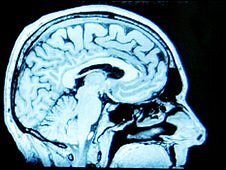 The latest study on the brain and the ability to speak multiple languages, shows that even when a bilingual person is speaking one language, the portion of the brain that processes the other language remains active,
The latest study on the brain and the ability to speak multiple languages, shows that even when a bilingual person is speaking one language, the portion of the brain that processes the other language remains active,
From the NPR article on the discovery:
The evidence is very dramatic. Even if you are in a context that is utterly monolingual, where you think there is absolutely no reason to think about Chinese or Spanish or French, it is part of the activated network that’s going on in your brain,” she [Ellen Bialystok, psychologist from York University] said. This means that bilinguals have to do something that monolinguals don’t do — they have to keep the two languages separate. Bialystok likens it to tuning into the right signal on the radio or television: The brain has to keep the two channels separate and pay attention to only one.
This news may help explain why bilingual people are also less likely to develop Alzheimers. In addition, bilingual people perform tasks faster, and are able to concentrate more effectively.
These discoveries about bilingual people only make me regret more that we haven’t been able to get my daughter to speak both Chinese and English. She’s five now and we’re thinking maybe next year when she’s in first grade that we’ll be able to enroll her into a once a week Chinese language class. She no longer complains about me speaking to her in Chinese, but will at least stop now and ask me what I’ve said. So far none of it has stuck, and she’ll ask the meaning of something I’ve said at least a hundred times. I’m hoping in time this will change.
If you’re thinking about learning another language, or whether to raise your child in a bilingual household, here’s another good reason to go down the path of speaking two languages.







